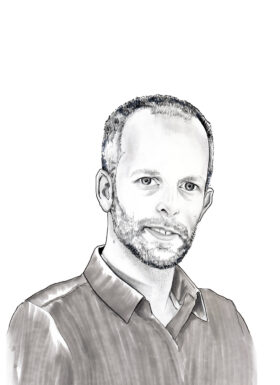-
Ammodo Science
Award for groundbreaking research2024 -
Ammodo Science Award
The Ammodo Science Award for groundbreaking research is intended to stimulate potentially groundbreaking research. Such research is usually the result of team work, and for that reason this Award is for research being carried out by a group of researchers working together, and is intended to recognise the contribution of every member of the group. The Award is presented every two years in four scientific domains: Biomedical Sciences, Humanities, Natural Sciences and Social Sciences.
-
Nomination & Selection
Each edition, the Ammodo Science Award for groundbreaking research includes a cash prize of 1,600,000 euros for each of the science domains Natural Sciences and Biomedical Sciences and a cash prize of 800,000 euros for each of the science domains Humanities and Social Sciences. The rectors of the fourteen Dutch universities affiliated to Universities of The Netherlands (UNL) may nominate a maximum of one research project per scientific domain.
-
Winners
The Ammodo Science Award for groundbreaking research focuses on potentially groundbreaking research and ensures that all researchers involved in the winning project are recognised and rewarded.
Teun Bousema
Laureate Biomedical Sciences 2019

Teun Bousema (1977) studied Biomedical Sciences at the Radboud University in Nijmegen, where he also obtained his PhD – cum laude – on the effects of malaria medication and the immune system on the transfer of malaria between humans and mosquitos. After his PhD he spent two years contributing to the foundation of the Kilimanjaro Clinical Research Institute in Tanzania. He has been connected to the London School of Hygiene & Tropical Medicine since 2008, and since 2012 he has led his own research group at the Radboud Institute of Molecular Life Sciences.
He has received, among others, an ERC starting grant, a NWO VIDI grant and obtained funding from the Bill & Melinda Gates Foundation. Bousema is an alumnus of De Jonge Akademie (the Young Academy, part of the Royal Netherlands Academy of Arts and Sciences) and received the Eijkman Medal in 2017 in recognition of his work in Tropical Medicine.
WebsiteResearch focus
Teun Bousema researches how the malaria parasite spreads from humans to mosquitos, and which factors are relevant for this.
The spread of and fight against malaria
Causing hundreds of thousands of deaths each year, malaria is one of the most serious infectious diseases of our time. It is caused by a single-celled parasite, Plasmodium falciparum. This deadly parasite is transferred to humans by the sting of an infected mosquito but to complete the life cycle of Plasmodium, infected humans have to pass the parasite on to other mosquitos as well.
Epidemiologist Teun Bousema uses various approaches to study how the distribution of Plasmodium occurs. Interestingly, the parasite appears to be able to tweak the ratio between male and female parasites to maximize its success in spreading. But Bousema also looks at humans: what are the effects of malaria medication, and does it matter when an infected person starts using this?
Bousema has a great eye for detail. Why do some people in a village become ill much more often than others? It seems that not only do preventive measures play a part, but also genetic predisposition and the microclimate in and around the house can be important. He also discovered that not everybody who is infected with the parasite is able to transfer them to mosquitos. About one in twenty humans in areas with malaria display an immune response capable of making Plasmodium harmless in the mosquito that stings them. Bousema is trying to unravel how this immune defence works and which of the parasite’s proteins are sensitive to it. This knowledge could be the basis of a vaccine that interrupts the life cycle of malaria.